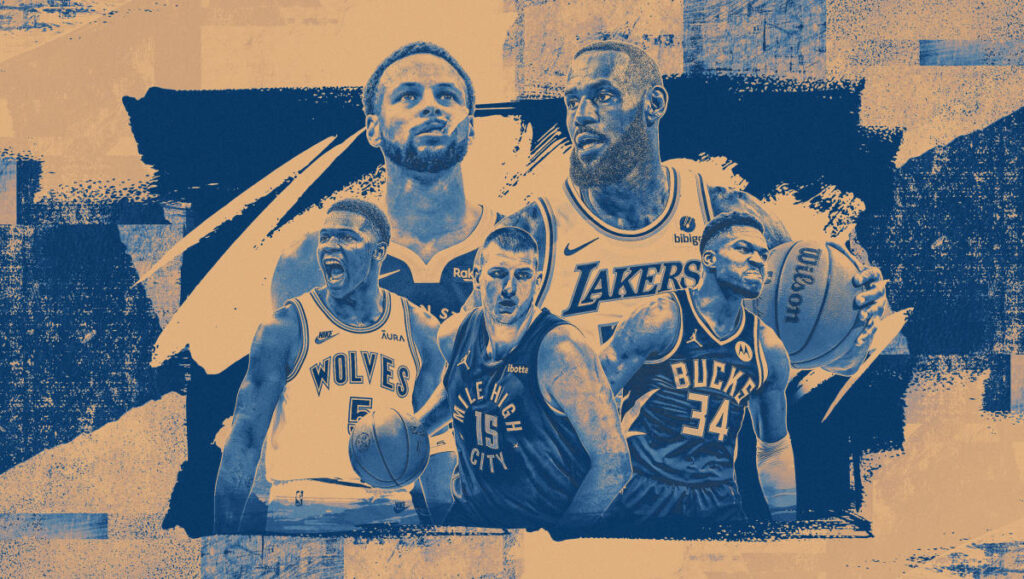As the 2024-25 NBA season approaches, several intriguing questions arise from the ever-evolving landscape of the league. One of the most pressing issues is whether the Denver Nuggets, following their historic championship win in 2023, can repeat their success. Despite possessing MVP Nikola Jokić, the Nuggets face challenges due to the NBA’s strict salary cap, which limits their ability to retain vital role players like Bruce Brown and Jeff Green. The competitive nature of the Western Conference adds to the pressure, as other teams bolster their rosters. Jokić’s brilliance remains a key factor, but without supplementary stars stepping up, the Nuggets may struggle to replicate their winning formula.
In the Eastern Conference, both the Philadelphia 76ers and New York Knicks are attempting to close the gap with the reigning Boston Celtics. However, their respective inconsistencies raise doubts about their playoff potential. The 76ers, while equipped with a talented roster, are at the mercy of Joel Embiid’s injury history, which complicates their strategy of prioritizing his health for the postseason. Meanwhile, the Knicks’ offseason acquisitions, particularly Karl-Anthony Towns, create new dynamics that may hinder their cohesiveness. With early-season injuries impacting their depth, both teams risk losing ground to stronger contenders like the Celtics, casting uncertainty on their playoff aspirations.
The Milwaukee Bucks, champions in 2021, also grapple with their status as contenders. Despite the arrival of Damian Lillard to pair with Giannis Antetokounmpo, concerns linger regarding the team’s age and injury history. The Bucks have struggled since their title run, prompting questions about their ability to navigate an increasingly competitive Eastern Conference. As Giannis approaches a new phase of his career, his performance will be critical, particularly given his past injuries and Lillard’s quest for resurgence. The Bucks’ continuity could be beneficial, but their margin for error is razor-thin, underscoring the risk they face as they vie for championship contention.
Meanwhile, the aging rosters of the Los Angeles Lakers and Golden State Warriors invite skepticism regarding their championship prospects. The Lakers capitalized on a relatively healthy season last year, but doubts remain over whether LeBron James and Anthony Davis can reproduce that success amid rising competition. Their reliance on inconsistent offensive output raises alarms about sustainability. On the other hand, the Warriors, despite retaining Stephen Curry, experienced roster instability following Klay Thompson’s departure. Expecting a vintage performance from aging stars may present an illusion of a possible resurgence, but both franchises face the daunting challenge of consistency in their performance.
In an era where young superstars like Anthony Edwards and Luka Dončić command attention, the former may be positioned for a breakout MVP season. Influenced by his experience during the Olympics, Edwards has shown glimpses of brilliance, particularly with his sizeable playoff contributions. His ability to carry the Timberwolves alongside Karl-Anthony Towns—potentially pulling away from his shadows—confers significant expectations that may place him in the MVP conversation. Dončić, however, is also a perennial candidate to capture the coveted award, depending on his determination and health throughout the season. While both players have the requisite skills, they need to produce standout moments to solidify their positions among the league’s elite.
As speculation swirls about potential trades involving star players, names like Brandon Ingram and Zach LaVine emerge as intriguing possibilities. Both players, possessing scoring capabilities hampered by injuries, could attract interest as teams seek to fortify their rosters. The current landscape emphasizes the importance of depth and the ability to maintain consistency, leading to discussions about waning defenses and strategies impacting the game’s flow. Addressing the over-reliance on the three-point shot is vital, as it alters the emotional dynamic of games. Exploring rule changes to diversify scoring methods could rejuvenate the competition and promote a richer, more varied style of basketball, preserving the sport’s excitement while ensuring teams craft their identities beyond merely becoming three-point shooting teams.

